Bahman Ghobadi
Birth : 1969-02-01, Baneh, Iran
History
Bahman Ghobadi was born in 1969 in Baneh, in the province of Iranian Kurdistan, near the Iran-Iraq border. Shortly after graduating from the National Audiovisual School, he made his first short, immediately acclaimed by the local critics. One of these short films, "Life in Fog" (1999) is even considered as the most famous short ever made in Iran. This success allowed Bahman Ghobadi to make several feature films, the best known being his first, "A Time for Drunken Horses" (2000), the first Kurd film in the history of Iran. This film and all the the others made by Ghobadi were hits in the festival circuit, garnered dozens of awards but were little seen or not seen at all in his native country. His last movie to date, filmed without official permit, rapidly and feverishly, "No One Knows About Persian Cats" (2009) is a remarkable semi-documentary about underground indie music in Tehran.
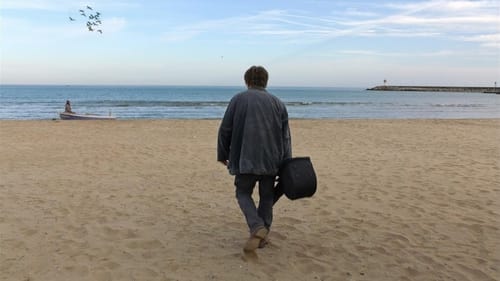
Producer
Kurdish composer Boran is no longer able to see the ocean, obstructed by a new building, and a tragedy befalls him…

Music
Kurdish composer Boran is no longer able to see the ocean, obstructed by a new building, and a tragedy befalls him…

Writer
Kurdish composer Boran is no longer able to see the ocean, obstructed by a new building, and a tragedy befalls him…

Director
Kurdish composer Boran is no longer able to see the ocean, obstructed by a new building, and a tragedy befalls him…

Producer
For Nariman the pilot and Helly Luv, an aspiring singer, being Kurdish is not just an identity; it’s a full-time job. Nariman needs young recruits for his flying school—a goal made darkly comic since he just survived a plane crash—while the illustrious Helly collects Kalashnikov rifles and a sea of Kurdish flags to produce her music video. In the midst of another war against the Kurdish people, Nariman reminisces about a long-lost love, and Helly finds herself connecting with Kurdish children at a refugee camp near the Syrian border, who are in urgent need of inspiration and hope.

Screenplay
For Nariman the pilot and Helly Luv, an aspiring singer, being Kurdish is not just an identity; it’s a full-time job. Nariman needs young recruits for his flying school—a goal made darkly comic since he just survived a plane crash—while the illustrious Helly collects Kalashnikov rifles and a sea of Kurdish flags to produce her music video. In the midst of another war against the Kurdish people, Nariman reminisces about a long-lost love, and Helly finds herself connecting with Kurdish children at a refugee camp near the Syrian border, who are in urgent need of inspiration and hope.

Producer
The fate of thousands of people is unified under the tarpaulins of the refugee camps in Kobanê and in Shingal. Kurdish filmmaker Bahman Ghobadi has given eight children the opportunity to use a camera to tell their own stories. Each film gives us a glimpse into the plight of the children, as seen through their own eyes. Their stories tell of young people with their whole lives ahead of them, though they’ve already lost almost everything. At a certain point, the film crew leaves the camp and follows the 13-year-old Mahmod and his sister in the search for his parent‘s house in Kobanê. The town has been ravaged by the war and all the children find is rubble. The eight films reveal the courage and openness of the young filmmakers, who share their stories with great intensity, realism and poetry, despite their harsh fate.

Director
For Nariman the pilot and Helly Luv, an aspiring singer, being Kurdish is not just an identity; it’s a full-time job. Nariman needs young recruits for his flying school—a goal made darkly comic since he just survived a plane crash—while the illustrious Helly collects Kalashnikov rifles and a sea of Kurdish flags to produce her music video. In the midst of another war against the Kurdish people, Nariman reminisces about a long-lost love, and Helly finds herself connecting with Kurdish children at a refugee camp near the Syrian border, who are in urgent need of inspiration and hope.
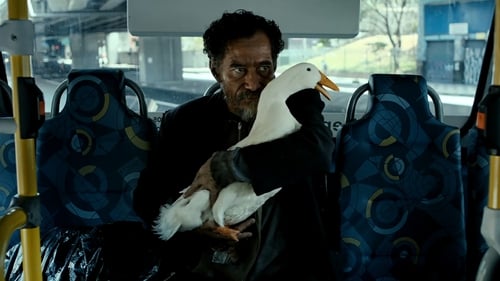
Screenplay
The first of four installments in the groundbreaking Heartbeat of the World anthology film series. Comprised of several short films by some of the world's most exciting directors, Words with Gods follows the theme of religion - specifically as it relates to an individual's relationship with his/her god or gods...or the lack thereof. In Words with Gods, each director recounts a narrative centered around human fragility, as well as environmental and cultural crises involving specific religions with which each has a personal relationship; including early Aboriginal Spirituality, Umbanda, Buddhism, the Abrahamic faiths, Hinduism, and Atheism. An animated sequence by Mexican animator Maribel Martinez is woven through each of the film segments, with each segment narratively connected as a feature-length film.

Director
The first of four installments in the groundbreaking Heartbeat of the World anthology film series. Comprised of several short films by some of the world's most exciting directors, Words with Gods follows the theme of religion - specifically as it relates to an individual's relationship with his/her god or gods...or the lack thereof. In Words with Gods, each director recounts a narrative centered around human fragility, as well as environmental and cultural crises involving specific religions with which each has a personal relationship; including early Aboriginal Spirituality, Umbanda, Buddhism, the Abrahamic faiths, Hinduism, and Atheism. An animated sequence by Mexican animator Maribel Martinez is woven through each of the film segments, with each segment narratively connected as a feature-length film.

Producer
A police officer finds himself haunted by a traumatic childhood memory as he searches for a missing man in the rugged mountains of Iraqi Kurdistan, in this striking feature debut by Batin Ghobadi.
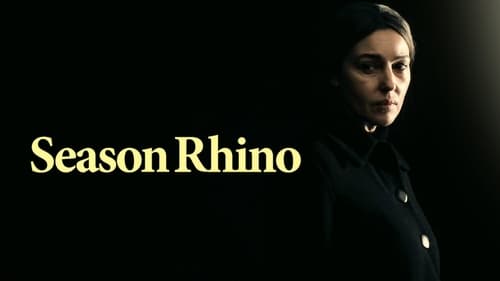
Production Design
Kurdish-Iranian poet Sahel has just been released from a thirty-year prison sentence in Iran. Now the one thing keeping him going is the thought of finding his wife, who thinks he's been dead for over twenty years.

Producer
Kurdish-Iranian poet Sahel has just been released from a thirty-year prison sentence in Iran. Now the one thing keeping him going is the thought of finding his wife, who thinks he's been dead for over twenty years.

Director
Kurdish-Iranian poet Sahel has just been released from a thirty-year prison sentence in Iran. Now the one thing keeping him going is the thought of finding his wife, who thinks he's been dead for over twenty years.
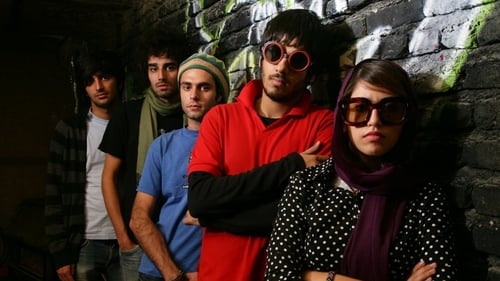
Production Design
Iranian musicians Negar and Ashkan look for band members to play at a London concert ... and the visa that allows them to leave Tehran to do so.

Producer
Iranian musicians Negar and Ashkan look for band members to play at a London concert ... and the visa that allows them to leave Tehran to do so.

Screenplay
Iranian musicians Negar and Ashkan look for band members to play at a London concert ... and the visa that allows them to leave Tehran to do so.

Director
Iranian musicians Negar and Ashkan look for band members to play at a London concert ... and the visa that allows them to leave Tehran to do so.
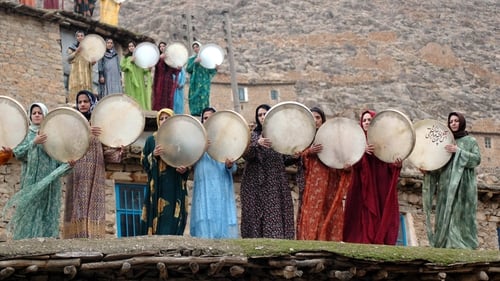
Screenplay
Mamo, an old and legendary Kurdish musician living in Iran, plans to give one final concert in Iraqi Kurdistan. After seven months of trying to get a permit and rounding up his ten sons, he sets out for the long and troublesome journey in a derelict bus, denying a recurring vision of his own death at half moon. Halfway the party halts at a small village to pick up female singer Hesho, which will only add to the difficulty of the undertaking, as it is forbidden for Iranian women to sing in public, let alone in the company of men. But Mamo is determined to carry through, if not for the gullible antics of the bus driver.

Producer
Mamo, an old and legendary Kurdish musician living in Iran, plans to give one final concert in Iraqi Kurdistan. After seven months of trying to get a permit and rounding up his ten sons, he sets out for the long and troublesome journey in a derelict bus, denying a recurring vision of his own death at half moon. Halfway the party halts at a small village to pick up female singer Hesho, which will only add to the difficulty of the undertaking, as it is forbidden for Iranian women to sing in public, let alone in the company of men. But Mamo is determined to carry through, if not for the gullible antics of the bus driver.

Art Direction
Mamo, an old and legendary Kurdish musician living in Iran, plans to give one final concert in Iraqi Kurdistan. After seven months of trying to get a permit and rounding up his ten sons, he sets out for the long and troublesome journey in a derelict bus, denying a recurring vision of his own death at half moon. Halfway the party halts at a small village to pick up female singer Hesho, which will only add to the difficulty of the undertaking, as it is forbidden for Iranian women to sing in public, let alone in the company of men. But Mamo is determined to carry through, if not for the gullible antics of the bus driver.

Director
Mamo, an old and legendary Kurdish musician living in Iran, plans to give one final concert in Iraqi Kurdistan. After seven months of trying to get a permit and rounding up his ten sons, he sets out for the long and troublesome journey in a derelict bus, denying a recurring vision of his own death at half moon. Halfway the party halts at a small village to pick up female singer Hesho, which will only add to the difficulty of the undertaking, as it is forbidden for Iranian women to sing in public, let alone in the company of men. But Mamo is determined to carry through, if not for the gullible antics of the bus driver.

Himself
Today Iranian cinema is one of the most highly regarded national cinemas in the world, regularly winning festival awards and critical acclaim for films which combine remarkable artistry and social relevance. Iran: A Cinematographic Revolution traces the development of this film industry, which has always been closely intertwined with the country's tumultuous political history, from the decades-long reign of Reza Shah Pahlevi and his son, the rise of Khomeini and the birth of the Islamic Republic, the seizure by militants of the U.S. Embassy in Tehran, and the devastating war with Iraq.
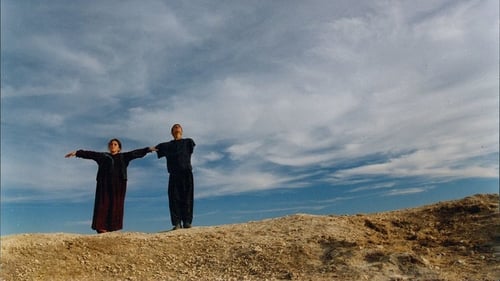
Screenplay
Turtles can fly tells the story of a group of young children near the Turkey-Iran border. They clean up mines and wait for the Saddam regime to fall.

Production Design
Turtles can fly tells the story of a group of young children near the Turkey-Iran border. They clean up mines and wait for the Saddam regime to fall.

Producer
Turtles can fly tells the story of a group of young children near the Turkey-Iran border. They clean up mines and wait for the Saddam regime to fall.

Director
Turtles can fly tells the story of a group of young children near the Turkey-Iran border. They clean up mines and wait for the Saddam regime to fall.

Screenplay
This documentary shows us how a Daf elaborated. It's about a family that all their children are blinded and they're running their family business. They're making Dafs which is an Iranian hand percussion musical instrument and nowadays it's mostly played in Kurdish folk songs.

Director
This documentary shows us how a Daf elaborated. It's about a family that all their children are blinded and they're running their family business. They're making Dafs which is an Iranian hand percussion musical instrument and nowadays it's mostly played in Kurdish folk songs.

Director
Akihiro, who lives in an old apartment building in Tokyo, makes songs and sings on the streets; Fei, a street musician who makes a living making a living by making the Iranian traditional instrument 'Daf', but does not neglect to play every night; A film director who travels around Seoul with a digital camera .

Producer
During the war between Iran and Iraq, a group of Iranian Kurd musicians set off on an almost impossible mission. They will try to find Hanareh, a singer with a magic voice who crossed the border and may now be in danger in the Iraqi Kurdistan. As in his previous films, this Kurdish director is again focusing on the oppression of his people.

Screenplay
During the war between Iran and Iraq, a group of Iranian Kurd musicians set off on an almost impossible mission. They will try to find Hanareh, a singer with a magic voice who crossed the border and may now be in danger in the Iraqi Kurdistan. As in his previous films, this Kurdish director is again focusing on the oppression of his people.

Director
During the war between Iran and Iraq, a group of Iranian Kurd musicians set off on an almost impossible mission. They will try to find Hanareh, a singer with a magic voice who crossed the border and may now be in danger in the Iraqi Kurdistan. As in his previous films, this Kurdish director is again focusing on the oppression of his people.
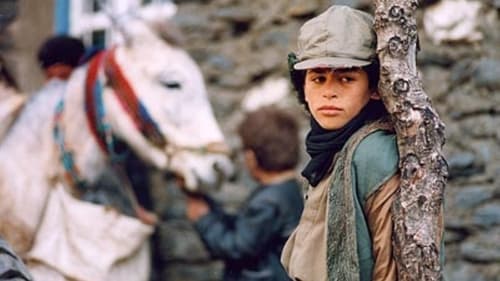
Art Direction
After their father dies, a family of five are forced to survive on their own in a Kurdish village on the border of Iran and Iraq. Matters are made worse when 12 year old Ayoub, the new head of the family, is told that his handicapped brother, Madi, needs an immediate operation in order to remain alive. This heartbreaking tale shows the lengths to which a family will go in order to survive in the harshest of conditions, where even the horses are fed liquor in order to work.

Producer
After their father dies, a family of five are forced to survive on their own in a Kurdish village on the border of Iran and Iraq. Matters are made worse when 12 year old Ayoub, the new head of the family, is told that his handicapped brother, Madi, needs an immediate operation in order to remain alive. This heartbreaking tale shows the lengths to which a family will go in order to survive in the harshest of conditions, where even the horses are fed liquor in order to work.

Screenplay
After their father dies, a family of five are forced to survive on their own in a Kurdish village on the border of Iran and Iraq. Matters are made worse when 12 year old Ayoub, the new head of the family, is told that his handicapped brother, Madi, needs an immediate operation in order to remain alive. This heartbreaking tale shows the lengths to which a family will go in order to survive in the harshest of conditions, where even the horses are fed liquor in order to work.

Director
After their father dies, a family of five are forced to survive on their own in a Kurdish village on the border of Iran and Iraq. Matters are made worse when 12 year old Ayoub, the new head of the family, is told that his handicapped brother, Madi, needs an immediate operation in order to remain alive. This heartbreaking tale shows the lengths to which a family will go in order to survive in the harshest of conditions, where even the horses are fed liquor in order to work.

Reeboir
Itinerant Kurdish teachers, carrying blackboards on their backs, look for students in the hills and villages of Iran, near the Iraqi border during the Iran-Iraq war. Said falls in with a group of old men looking for their bombed-out village; he offers to guide them, and takes as his wife Halaleh, the clan's lone woman, a widow with a young son. Reeboir attaches himself to a dozen pre-teen boys weighed down by contraband they carry across the border; they're mules, always on the move. Said and Reeboir try to teach as their potential students keep walking. Danger is close; armed soldiers patrol the skies, the roads, and the border. Is there a role for a teacher? Is there hope?
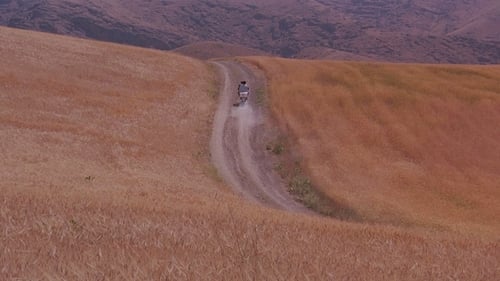
Assistant Director
Irreverent city engineer Behzad comes to a rural Kurdish village in Iran to keep vigil for a dying relative. In the meanwhile the film follows his efforts to fit in with the local community and how he changes his own attitudes as a result.

Irreverent city engineer Behzad comes to a rural Kurdish village in Iran to keep vigil for a dying relative. In the meanwhile the film follows his efforts to fit in with the local community and how he changes his own attitudes as a result.










